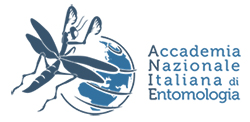
Matteo Montagna
matteo.montagna@unina.it
BIOGRAPHY
Born in Como on February 8, 1980. In 2006, he graduated in Agri-environmental Sciences at the University of Milan with 110/110L, where in 2013 he received the PhD in Animal Biology. Since 2020, Associate Professor in Entomology, first at the Department of Agricultural and Environmental Sciences of the University of Milan (2020-2021), after at the Department of Agricultural Sciences of the University of Naples Federico II (2021 – present). From the beginning of his career, he published more than 80 scientific papers on entomological topics.
His main research interests are the study of the ecology and evolution of insects. Specifically, he deals with the study of insects-microorganisms-plants interactions, with a special focus on the role of bacteria in the adaptation of the phytophagous insects to the host plants, but also to the molecular taxonomy, phylogeography and phylogeny of insects. Recently, he has undertaken some studies with the aim of evaluating the impact of anthropic disturbance on invertebrate biodiversity in agroecosystems.
Awards
2017 Most cited paper of Insect Science in 2017 (doi: 10.1111/1744-7917.12143).
2017 FFABR 2017–MIUR award for the research performed 2014-2016.
2013 Entomological Society of America award to attend ESA Annual Meeting, Austin/US.
- I. Di Lelio, … , M. Casartelli*, M. Montagna*, F Pennacchio* (2023). A soil fungus confers plant resistance against a phytophagous insect by disrupting the symbiotic role of its gut microbiota. Proceedings of the National Academy of Sciences of the United States of America. 120(10): e2216922120. Doi: 10.1073/pnas.2216922120.
- 2. Brunetti, … , Montagna M. (2022). Does diet breadth affect the complexity of the phytophagous insect microbiota? The case study of Chrysomelidae. Environmental Microbiology 24(8): 3565-3579. doi: 10.1111/1462-2920.15847.
- G. Magoga, D. Fontaneto, M. Montagna* (2021). Factors affecting the efficiency of molecular species delimitation in a species-rich insect family. Molecular Ecology Resources 21: 1475-1489. doi: 10.1111/1755-0998.13352.
- M. Montagna*, … , N. Lo (2019). Recalibration of the insect evolutionary time scale using Monte San Giorgio fossils suggests survival of key lineages through the End-Permian Extinction. Proceedings of the Royal Society B: Biological Sciences 286(1912): 20191854. doi: 10.1098/rspb.2019.1854.
- M. Montagna*, … , Gandini G. (2018). Differential biodiversity responses between kingdoms (plants, fungi, bacteria and metazoa) along an Alpine succession gradient. Molecular Ecology 27(18): 3671-3685.
